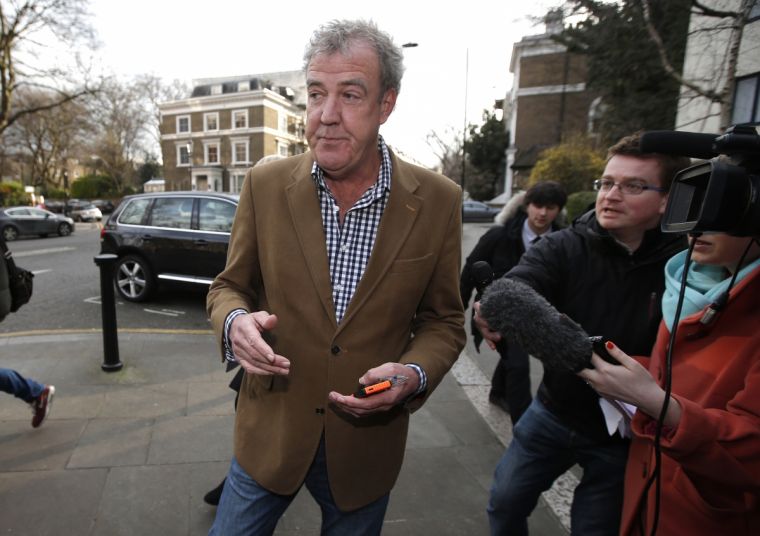Clarkson's been sacked. Good, but I'm just a bit sorry

So, Jeremy Clarkson is gone. The maverick presenter finally crossed a line with his verbal and physical assault on producer Oisin Tymon, and despite the million-signature petition in Clarkson's support, director general Lord Hall had no real option but to sack him.
For the avoidance of doubt, Hall was perfectly right to do so and the million who signed the petition did so because they were idiots. Seriously: a rich and powerful person abuses and assaults someone lower down the pecking order who's scared of losing his job, and that's OK? Was it OK for Heather Cho, the Korean Air executive, to do the same to a hapless employee because he served her peanuts in a bag instead of on a plate? We thought she was a selfish, spoiled bully who richly deserved what she got. Well, then.
What's interesting, though, is why so many people thought Clarkson was worth supporting: and here's why the liberal intelligentsia just don't get it. They point to his political incorrectness – shorthand for verging-on-racism – his cheerful dismissal of climate change, his unashamed xenophobia and general lack of the sort of conversational filter that most of us acquire through painful experience as the years go by. Why on earth, they think, is someone who says things so popular?
In all this, of course, they miss the point. Clarkson's cult status arises from two sources. First, he occupies a particular cultural niche. He is the archetypal trickster figure. Tricksters are funny, foolish or both. They break the rules and get away with it. They are clowns, jesters, subversives, who say the unsayable and render it ridiculous by bringing it out into the open.
So Jeremy Clarkson thinks a typical Mexican is "a lazy, feckless, flatulent oaf with a moustache, leaning against a fence asleep, looking at a cactus with a blanket with a hole in the middle on as a coat"? How dreadful: we will never look at a Mexican in the same way again. Except, of course, we know it's rubbish because it's Clarkson saying it.
That's Clarkson himself. The second reason why people love him is directly related to Top Gear, and it's about his relationship with James May and Richard Hammond. The unlikely trio are screen gold, and whoever brought them together ought to win an award. What works is that they're 10-year-olds in middle-aged bodies. In character, they are children who forgot to grow up. They even call each other by their surnames, in a schoolboy-blokeish sort of way (I was in my teens before my schoolfriends acquired Christian names). What's not to like? You put up with things from children that you'd never put up with from adults, and what Top Gear demands of its devotees is a willing suspension of disbelief.
Furthermore, they are friends, or if they aren't they give a note-perfect impression of what male friendship ought to be like. They are competitive, irritating, puerile, for sure: but we look at them and we either recognise our own friendships, or wish we had some like theirs. So I'm not going to forecast what they'll do, but let me offer May and Hammond some free advice: don't let the BBC parachute another Jeremy in. It wouldn't work, whoever it was. Just leave: you don't need the money, by all accounts, and it will be better all round. Some things just end.
I'll miss them, frankly. The gaity of nations has been eclipsed and the public stock of harmless pleasure impoverished – though there are 12 years of re-runs to look forward to.
But I'm not sorry for them: I reserve that for Oisin Tymon, who has faced an outpouring of hatred and must fear for his professional future. Children, after all, are delightful, but not all the time: and if the adults fail to take responsibility, people get hurt.











